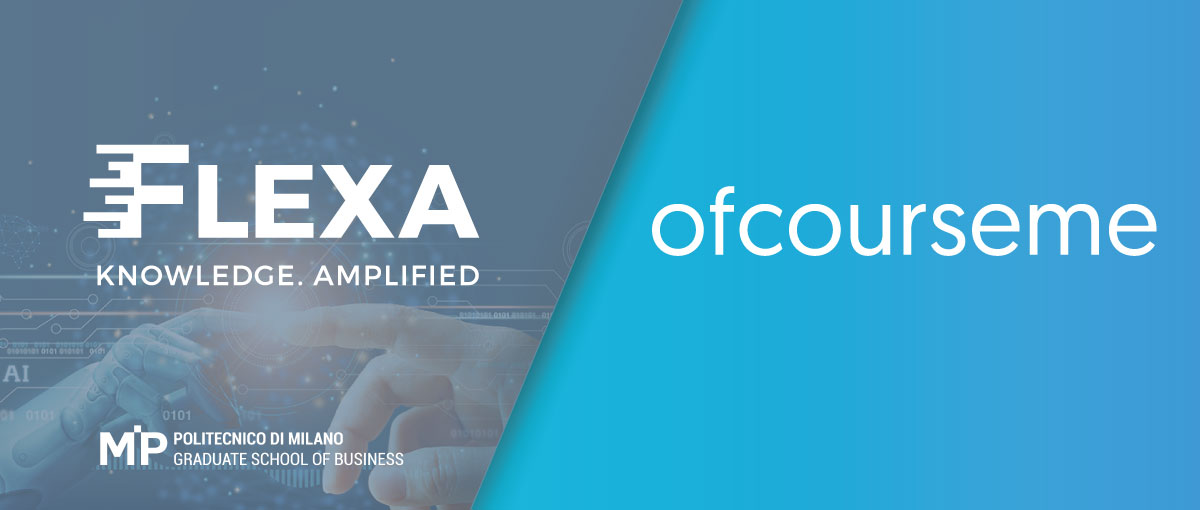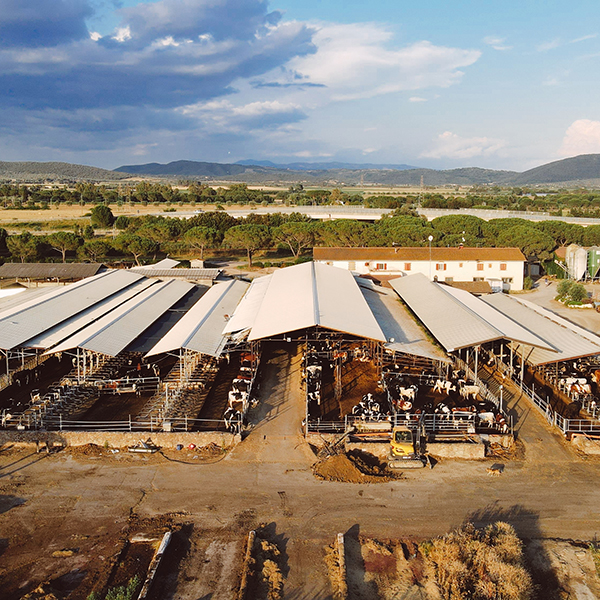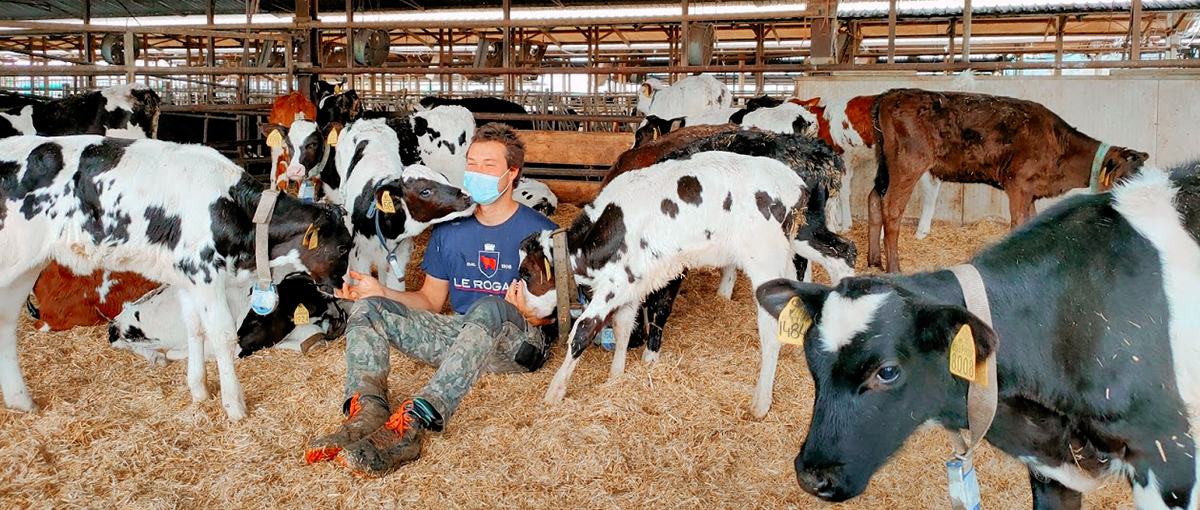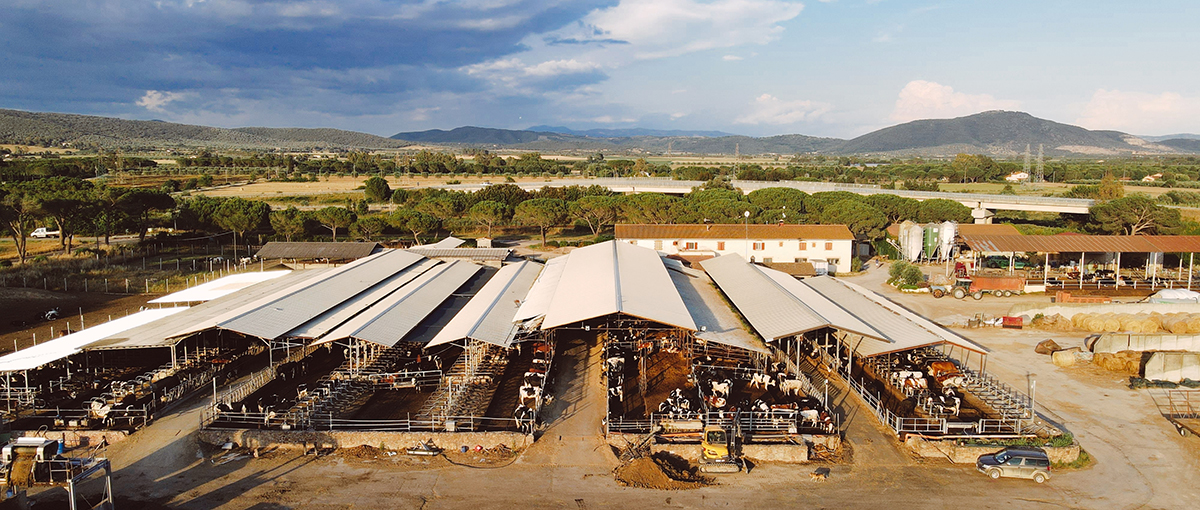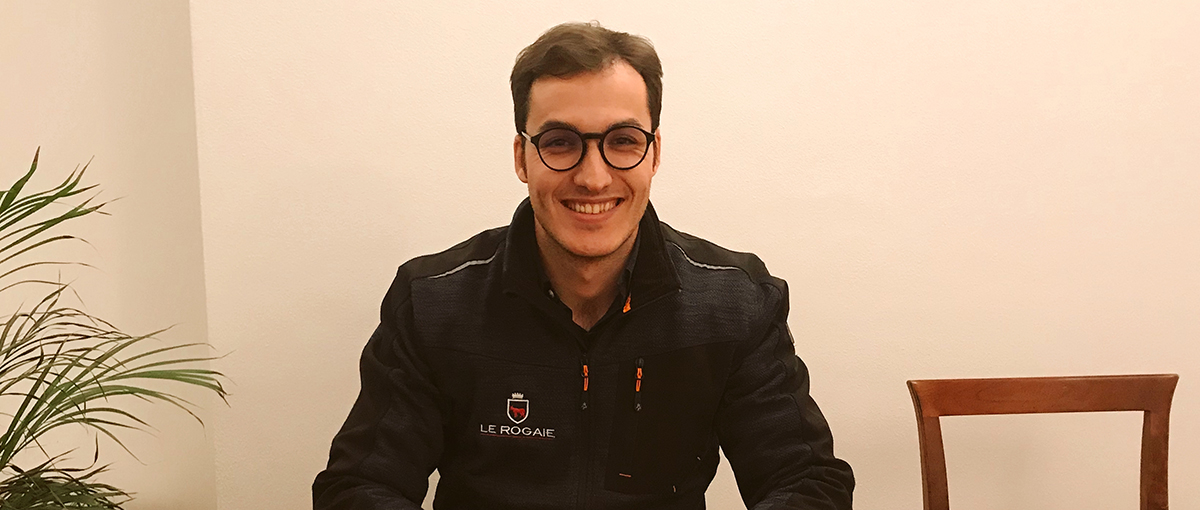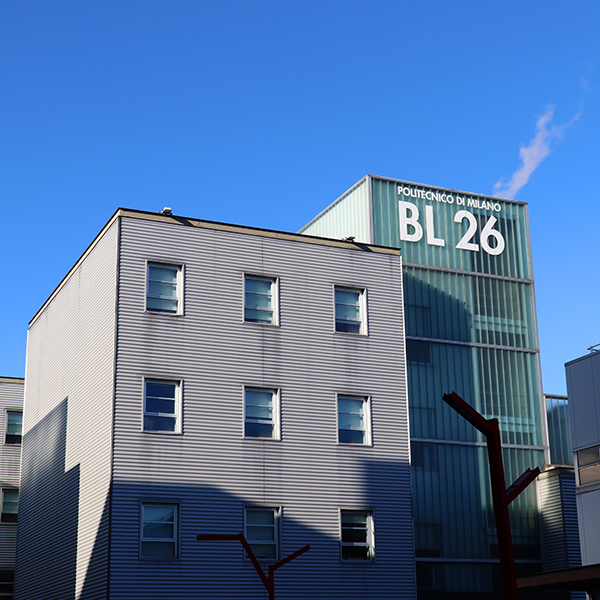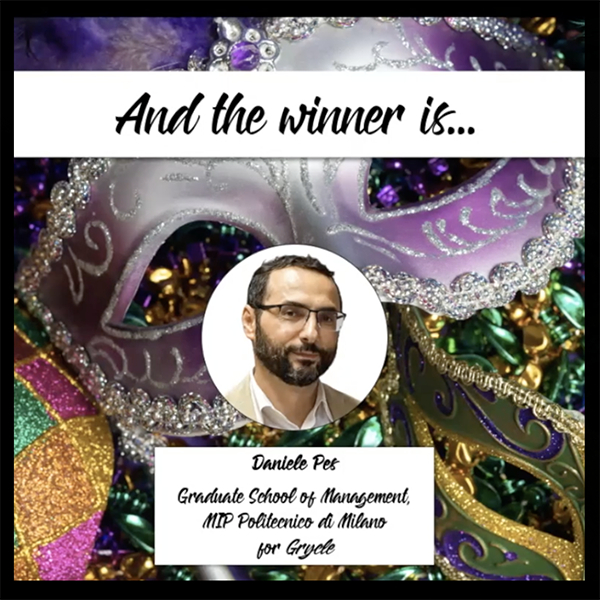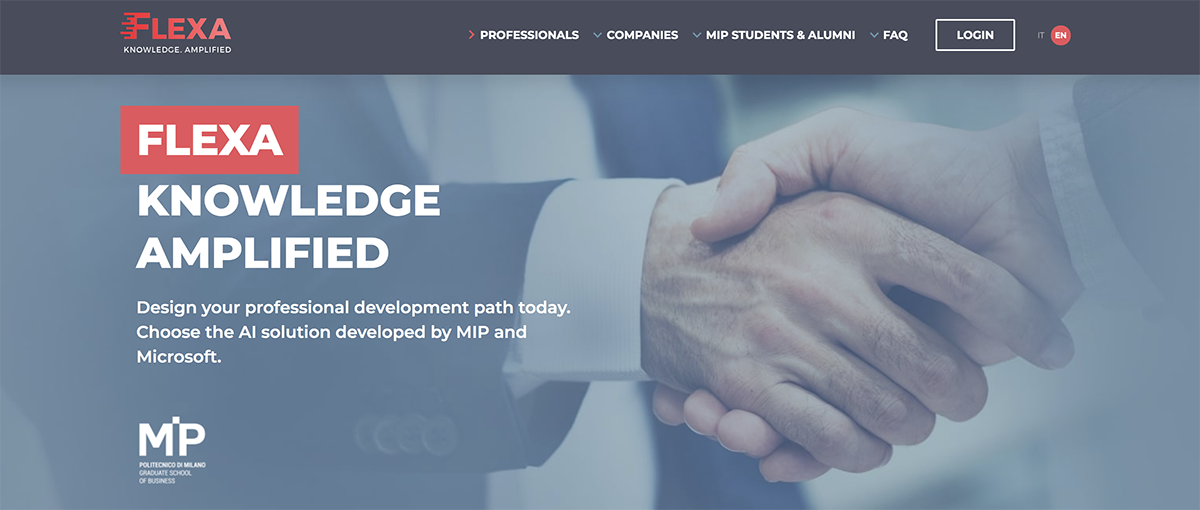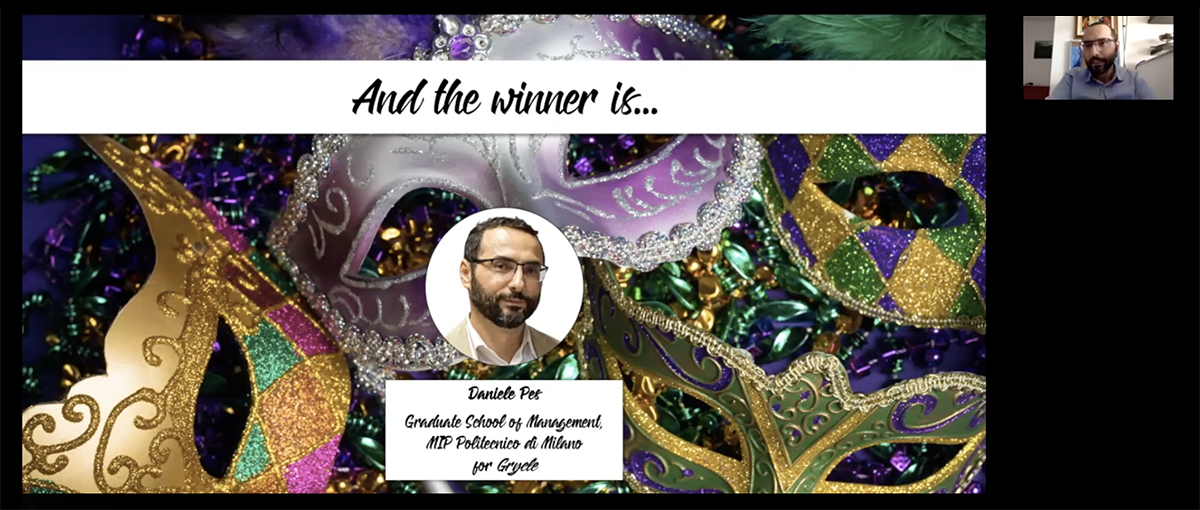
Daniele Pes, a graduate from Graduate School of Management, MIP Politecnico di Milano, has won the coveted MBA Startup of the Year award for his company Grycle.
He received this accolade at the AMBA & BGA Excellence Awards, which were held virtually on 29 January 2021.
The ceremony had 365 people registered to attend including Business School leaders, as well as category finalists, judges and members of the media.
Daniele Pes left his role as Director of Open Innovation and Digital Transformation in a multinational fair-trade company to dedicate himself to his new venture, Grycle.
Grycle performs small-scale industrial waste treatment, allowing the transformation of undifferentiated waste back into raw materials upstream of the supply chain, thus dramatically reducing costs and impacts.
The patented technology transforms waste sustainably into flakes of raw materials that are automatically separated and ready for industrial reuse. There is no more need for manual sorting. Garbage is turned from waste into valuable resources, which are recyclable indefinitely.
“On behalf of Grycle team I want to thank MIP and make an appeal to the companies in the waste and mechatronics industries, as long as the investors out there. We do the R&D you might have done in the past. If we’ve not done enough so far, this is the perfect moment to fill the gap between talking about the environment and concretely change. And evolve. Let’s talk, let’s collaborate, let’s make it real, together”, said Daniele Pes.
Andrew Main Wilson, Chief Executive of the Association of MBAs and Business Graduates Association (AMBA & BGA), said: ‘On behalf of the AMBA and Business Graduates Association (BGA) team, I would like to congratulate the Finalists and Winners of this year’s Excellence Awards.
‘This was our largest-ever AMBA & BGA Excellence Awards, featuring 11 categories. We have had a record number of entries, representing all six continents, and the competition was stronger than ever. The entries who made the final shortlist in each category should feel proud of their achievements.
‘I also want to take the opportunity to thank our headline sponsor, Blue Prism, and its Chairman and CEO, Jason Kingdon, as well as our award sponsors – Advent Group, Barco and Studious Digital Education. Their support for our awards – and the business education sector – is greatly appreciated.’
ENDS
For more information or interviews, please contact:
Awards selection process
The Finalists list was shortlisted by AMBA & BGA’s senior management team. Our judges reviewed more than 100 shortlisted entries, selecting a winner (‘gold’) and, if appropriate, a ‘silver’ and ‘bronze’ for each award. Our judging panel is made up of AMBA board members, business experts, deans, and management leaders. Judges decided the winners based on written submissions for all categories, as well as interviews with all finalists for all student and graduate categories. Judges then scored all finalists confidentially with the scores added up to decide the winners.
All of our judges were selected based on their experience and qualifications.
More information about the categories and complete list of the Gold, Silver and Bronze winners and Finalists
Best Innovation Strategy, sponsored by Barco
The Best Innovation Strategy award is a celebration of innovation and radical thinking in business education delivery across all areas of the Business School and has been developed to recognise and reward game-changing new practices, risks and creativity around AMBA-accredited and BGA member programmes. It promotes the value of taking risks in pursuit of the new across a number of different areas such as teaching, learning, recruitment and alumni relations.
Gold
- TBS Business School (formerly known as Toulouse Business School) (France) for ‘Teaching through comedy: injecting humour into educational videos’
Silver
- Graduate School of Management, MIP Politecnico di Milano (Italy) for ‘Immersive learning with simulations and virtual reality’
Bronze
- Adam Smith Business School, University of Glasgow (UK) for ‘Decision making under uncertainty: making a drama out of a crisis – transitioning a core MBA course into an online format using the Covid-19 pandemic as an integrated case study’
Finalists
- Imperial College Business School, Imperial College London (UK) for ‘A three-stage strategic response to the disruption in teaching provision due to the Covid-19 pandemic: stabilise, enhance and innovate’
- School of Management, Harbin Institute of Technology (HIT) (China) for ‘Fintech MBA programme’
Best Lifelong Learning Initiative, sponsored by Studious Digital Education
The Best Lifelong Learning Initiative is a new award which recognises the efforts of AMBA & BGA member Schools that are reinventing teaching and learning among students, graduates, alumni networks, and in their custom and executive education offerings.
The finalists showcase the impact and success these initiatives have had not only to students, but also to the Business School.
Gold
- Mannheim Business School, University of Mannheim (Germany)
Silver
- Thammasat Business School, Thammasat University (Thailand)
Bronze
- Hult International Business School (US)
Finalists
- EGADE Business School, Tecnológico de Monterrey (Mexico)
- Facultad de Economía y Negocios, Universidad Anáhuac México (Mexico)
- International Institute of Business (IIB) (Ukraine)
Best Corporate Social Responsibility Initiative
The Best Corporate Social Responsibility (CSR) Initiative award honours AMBA-accredited and BGA member, validated and accredited Business Schools that share AMBA & BGA’s commitment to Corporate Social Responsibility (CSR) and that are passionate about making a difference to communities and societies.
The award recognises Business Schools that are taking the initiative in creating a sustainable future and teaching students about social values; as well as making a positive impact in practical and measurable ways.
Gold
- Lagos Business School, Pan-Atlantic University (Nigeria) for ‘LBS Sustainability Centre (LBSSC)’
Silver
- Glorious Sun School of Business and Management, Donghua University (China) for ‘Social Responsibility Leadership Programme’
Bronze
- CENTRUM PUCP Business School, Pontificia Universidad Católica del Perú (Peru) for ‘Improving My Store’
Finalists
- Hanken School of Economics (Finland) for ‘Business Lead’
- IPADE Business School, Universidad Panamericana (Mexico) for ‘IPADE Social Challenge’
- Shantou University Business School, Shantou University (China) for ‘Leiling Honey Project, Fenghuangshan Mountain Tea Promotion Project, Recycling Project of China’
Best Business School Partnership, sponsored by Blue Prism
The Best Business School Partnership recognises organisations that share AMBA & BGA’s passion for building networks and have adopted a proactive, innovative approach to strategic collaboration.
This award is designed to celebrate Business Schools working strategically and collaboratively with (for example) another Business School / group of Schools, an employer, consultant, education partner or technology provider, social impact group, individual, charity, or other organisation.
Gold
- Lancaster University Management School, Lancaster University (UK) with Transnational Academic Group
Silver
- CENTRUM PUCP Business School, Pontificia Universidad Católica del Perú (Peru) with Industrias San Miguel
Bronze
- School of Business, Jiangnan University (China) with Jiangsu JD-Link International Logistics
Finalists
- Graduate Business School, NUCB Business School (Japan) with Toyota Motor Corporation
- Graduate School of Management, MIP Politecnico di Milano (Italy) with Prada
Best Culture, Diversity and Inclusion Initiative, sponsored by Advent Group
The Best Culture, Diversity and Inclusion Initiative is a new award which has been introduced in 2021, which recognises Business Schools and the work they have been doing to create, incorporate and develop culture, diversity and inclusion practices into their Business School, while balancing and involving fair working environments.
Gold
- Imperial College Business School, Imperial College London for ‘Working in diverse organisations’
Silver
- IE Business School (Spain) for ‘LGBT+@Work’
- Instituto de Estudios Superiores de Administración (IESA) (Venezuela) for ‘Women entrepreneurs programme – Grupo Cisneros’
- Monash Business School, Monash University (Australia) for ‘Queering accounting’
BGA Business School Impact Award
The BGA Business School Impact Award is a newly created award in 2021, open to BGA member, validated, and accredited Schools which demonstrate their impact on all stakeholders, alongside BGA’s vision and Charter. It also promotes the values of positive impact, innovation, responsible management and lifelong learning across areas such as programme design, social outreach programmes, alumni relations, careers services and other areas where the Business School is demonstrating an impact.
Gold
- School of Business, Universidad de San Andrés (Argentina)
Silver
- Athena School of Management (India)
Finalists
- Brunel Business School, Brunel University London (UK)
- Collegium Humanum-Warsaw Management University (Poland)
- International Management Institute (MIM-Kyiv) (Ukraine)
- Rotterdam School of Management, Erasmus University (Netherlands)
BGA Future Leaders Case Competition
The BGA Future Leaders Case Competition provides BGA student and graduate members with an opportunity to showcase their business acumen by solving a time-relevant global business problem with a focus on ensuring sustainability and responsible management practices are at the forefront of proposed solutions.
Gold
- Nicolas Sauviat, Aston Business School, Aston University (UK)
Finalists
- Ahmed Youssef Ahmed Aly, Graduate School of Management, MIP Politecnico di Milano (Italy)
- Hari Chandan Patnaik, Birmingham Business School, University of Birmingham (UK)
- Racquella Laurel Parris, Arthur Lok Jack Global School of Business, The University of the West Indies (Trinidad and Tobago)
MBA Startup of the Year
The MBA Startup of the Year is a new award which celebrates the achievements of successful MBA students and alumni in innovative world-class business strategy. It also showcases Business Schools that are nurturing a spirit of enterprise and ambition.
This award highlights the success of AMBA-accredited Business Schools that promote entrepreneurship in their MBA cohorts.
Gold
- Daniele Pes, Graduate School of Management, MIP Politecnico di Milano (Italy) for Grycle
Silver
- Yann Le Guillou, Rennes School of Business (France) for Biosency
Bronze
- Aku Wilenius, School of Business, Aalto University (Finland) for Caidio
Finalists
- Codilia Gapare, Business School, Manchester Metropolitan University (UK) for C-Lash
- Laura Judith Ramírez Guevara, EGADE Business School, Tecnológico de Monterrey (Mexico) for Dereum Labs
- Tatiana Flores Burbano, ESADE Business School, Ramon Llull University (Spain) for Exponencial
MBA Entrepreneur of the Year
The MBA Entrepreneur of the Year award celebrates the achievements of successful alumni in innovative world-class business strategy, but also showcases Business Schools that are nurturing a spirit of enterprise and ambition.
The MBA Entrepreneur of the Year award is one of the most distinguished awards in the industry. AMBA has developed the MBA Entrepreneur of the Year award to encourage and promote the value of entrepreneurship in the current competitive climate and to highlight its importance in the global market.
Gold
- Oluwatobi Ajayi, Lagos Business School, Pan-Atlantic University (Nigeria) for Nord Automobiles
Silver
- Daniel Burns, TUM School of Management, Technische Universität München (Germany) for Testifi
Bronze
- Daniel George, Cranfield School of Management, Cranfield University (UK) for StepEx
Finalists
- Francisco Santolo, Universidad del CEMA (Argentina) for Scalabl
- Ramil Khantimirov, Graduate School of Management, Saint Petersburg State University (Russia) for StormWall
- Sarah Martin, Kent Business School, University of Kent (UK) for Nourish Zero Waste
MBA Leadership Award
The MBA Leadership Award is a new award for 2021 which honours alumni from AMBA-accredited Business Schools who have been making an impact in the business world following their graduation.
The award recognises the work of these alumni through their achievements, performance and recognition.
Gold
- Oare Ehiemua, ESADE Business School, Ramon Llull University (Spain)
Silver
- Alforde Charumbira, UCT Graduate School of Business, University of Cape Town (South Africa)
Bronze
- Vyacheslav Klimov, International Institute of Business (IIB) (Ukraine)
Finalists
- Ashwanth Gnanavelu, Kent Business School, University of Kent (UK)
- Ivan Syreyshchikov, Graduate School of Management, Saint Petersburg State University (Russia)
- Shivanku Misra, IMI New Delhi (India)
MBA Student of the Year
AMBA’s MBA Student of the Year award plays a pivotal role in supporting AMBA’s pledge to promote the MBA degree as the leading international business qualification.
The MBA Student of the Year award recognises students who have shown exceptional career potential and who AMBA believes can act as ambassadors for the high quality of accredited MBAs and the opportunities these programmes provide for students from a wide range of different personal and professional backgrounds.
Gold
- Mital Thanki, School of Business, University of Leicester (UK)
Silver
- Kayee Au, AUC School of Business, The American University in Cairo (Egypt)
Bronze
- Leon Lloyd, Business School, Manchester Metropolitan University (UK)
Finalists
- Ciara Close, UCD Michael Smurfit Graduate Business School, University College Dublin (Ireland)
- Koshy Alexander, IE Business School (Spain)
- Ramiro Agustin Costa, Universidad del CEMA (Argentina)
Find a list of all AMBA accredited Schools here.



